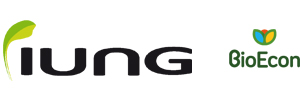The European Commission’s commitment to promoting gender equality in research and innovation is an important part of the European Commission’s broader Gender Equality Strategy 2020-2025, announced in March 2020. One of the objectives of this strategy is to strengthen the European Research Area (ERA) to ensure equal opportunities in a working environment where all, regardless of gender, can develop their talents and to better integrate the gender dimension in scientific projects in order to improve the quality of research as well as its relevance to a society based on knowledge, technology and innovation.
In line with the above, the legal basis of the Horizon Europe (HE) Framework Programme 2021-2027 supports the Commission’s work on gender equality in research and innovation by setting gender equality as a cross-cutting priority. This is evidenced by a number of provisions. According to Article 7(6) of the EU Parliament and Council Regulation of 28 April 2021, the HE Programme “shall ensure the effective promotion of equal opportunities for all and the integration of gender mainstream, including gender main streaming in research and innovation content. The programme shall seek to address the causes of gender imbalance. Particular attention shall be paid to ensuring, as far as possible, gender balance in evaluation panels and other relevant advisory bodies such as boards and expert groups.” In turn, paragraph 53 of the same Regulation states that activities carried out under Horizon Europe should “aim to eliminate gender bias and gender gaps, improve work-life balance and promote equality between men and women in research and innovation, including the principle of equal pay without discrimination based on sex (…).” Similar provisions can also be found in the HE Specific Programme. In light of the existing legal provisions, three main changes have been introduced in Horizon Europe, which are ultimately intended to lead to higher levels of gender equality among male and female researchers:
- having a Gender Equality Plan (GEP) becomes an eligibility criterion for all public authorities, higher education institutions and research organisations wishing to participate in Horizon Europe;
the integration of the gender dimension in the research and innovation content is an implicit requirement, assessed under the excellence criterion, unless explicitly stated otherwise in the topic description
gender balance in research teams will be the determining criterion for grant applications with the same number of ranking points.
The Institute already had internal regulations related to the internal anti-discrimination policy and implemented activities referring to it within the framework of the Human Resources Development Strategy (HRS4R).
At the end of 2021, we present you with the final version of the Gender Equality Plan of the Institute of Cultivation of Fertilisation and Soil Science – State Research Institute. The document has been developed with the active involvement of various groups of Institute staff.
Link to Gender Equality Plan of IUNG-PIB
Polish: https://www.iung.pl/wp-content/uploads/2021/12/GEP_PL.pdf
English: https://www.iung.pl/wp-content/uploads/2021/12/GEP_EN.pdf
This note was developed using excerpts from the document:
Gender Equality Plan – how to do it?
Office of Science Promotion of the Polish Academy of Sciences in Brussels,
Author: Dr Justyna Kramarczyk,
Expert consultation: The team of PolSCA Office. 2021.

